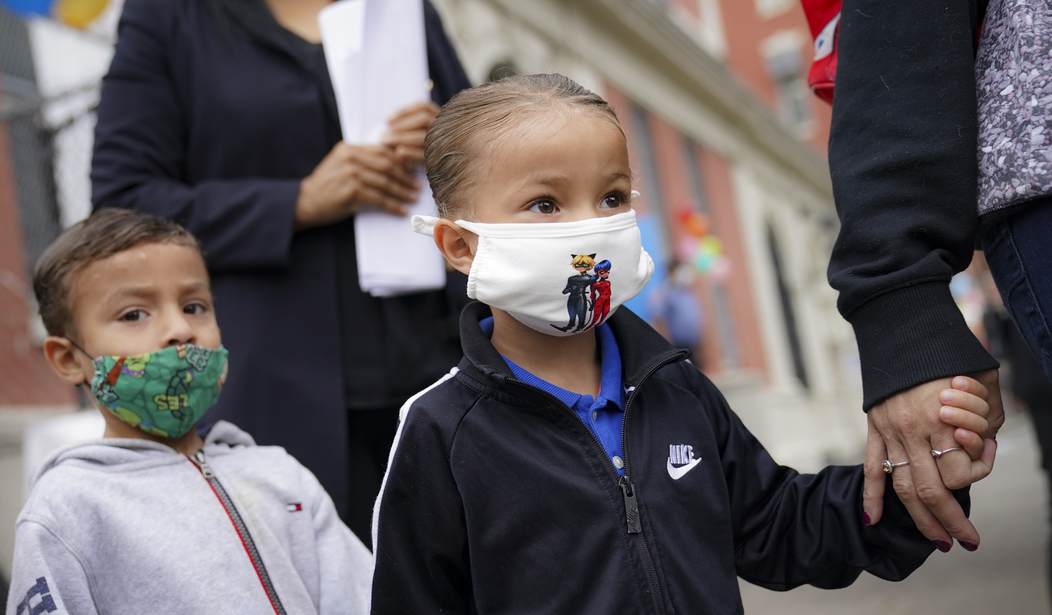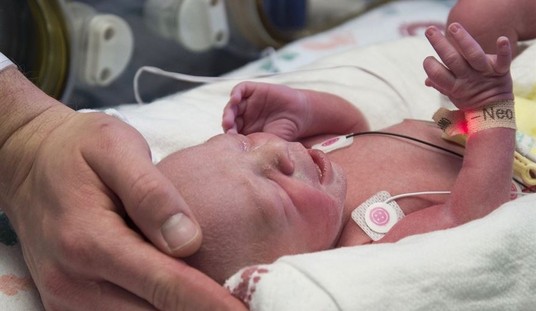America’s gifted students are benefiting from being smarter than everyone else. And in our new woke America, we can’t allow that.
Indeed, educators and activists see the problem in racial terms. There are more white students in gifted programs than black, so the solution is to either get rid of the programs or change the standards to allow more students of color to be recognized as “gifted” so they can participate.
The “evidence” for this racism can be found in the “outcomes.” More white kids are found to be “gifted” than black kids. And while children in white schools compete fiercely for the opportunity to attend special classes, spaces in majority-black schools go unfilled.
Because white kids are seen as being advantaged by these programs, they must be disadvantaged or canceled.
This effort at leveling in our schools only makes all kids dumber. The whole point of these gifted programs is to encourage excellence in learning. But when some kids take advanced classes because they grasp the material quicker, or learn at a more rapid pace, this is apparently a very bad thing that needs to end. Students should all learn at the same pace and there should be no exceptional children to educate.
NBCNews has created a series of reports that shows how disparities between white and blacks in entry into gifted programs can be due to only one thing: racism.
The Hechinger Report’s analysis of U.S. Department of Education Office for Civil Rights data suggested the problem is acute in some cities that also have high levels of racial segregation by neighborhood. In Cincinnati, for instance, Black students made up 63 percent of the student body but just 16 percent of the small gifted program, according to 2015 data from the Office for Civil Rights.
In Buffalo, administrators say they know that their district’s gifted education racial imbalance is a problem: The Office for Civil Rights investigated the district six years ago. In response, the district made it easier to apply for Olmsted’s gifted program, created the new program at Eve and began the process of infusing every classroom from pre-K through fourth grade with enriched lessons.
In other words, move black kids into rich white neighborhoods and they will magically transform into gifted students.
There is so much wrong with this idea that it’s hard to know where to start. White kids are not “smarter” than black kids. But with early childhood education, parents interested in their progress, and a tax base willing to pay for the best schools possible, inequality exists as a consequence of other factors besides race.
So instead of encouraging these gifted kids, standards should be altered so that more kids are seen as “gifted.”
Psychologist Joseph Renzulli, probably the most influential person in gifted education today, views giftedness as dynamic, not as a fixed quality you either have or don’t. He proposed a Venn diagram: Giftedness is where creativity, above-average ability and commitment to completing a task meet. He speaks not of gifted people but of gifted behaviors that can be developed and that show up “in certain people, at certain times, under certain circumstances.” Renzulli’s summer workshops for educators have trained more than 35,000 teachers over 40 years, including numerous Olmsted staff.
I don’t think we should dismiss that notion entirely. But the fact is, not all kids are equal. There are black kids more intelligent than white kids and whites smarter than blacks. The idea that innate intelligence — the notion that some people regardless of race are born with more potential to do well in school — has to be recognized. Otherwise, we put smart kids at a disadvantage. And that’s not fair.
Obviously, improving schools in black neighborhoods would address the problem of inequality more directly. But poverty has its way with people regardless of their innate intelligence. Single-parent households, hopelessness, and a lack of interest by a parent when they’re home feed the cycle of poverty and ignorance.
Fixing “racism” won’t help as much as addressing the problem of poverty — for white and black kids.










Join the conversation as a VIP Member